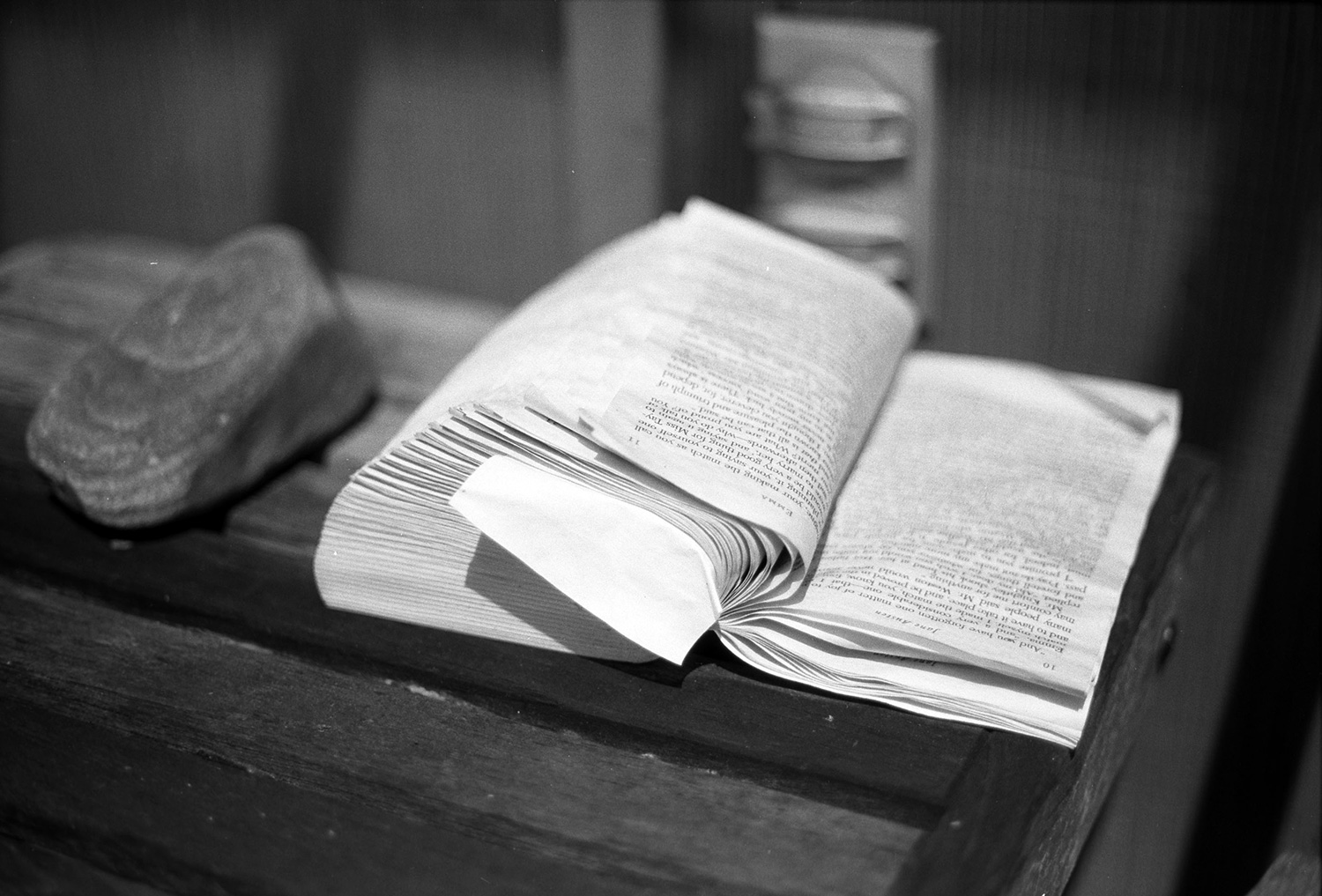with abandon

— Is it OK, do you think, to stop reading a book without finishing it?
— What do you mean by ‘finishing a book’?
— Getting to the end of it.
— So you think that if someone takes up a book and turns all of the pages until he (the exemplar is invariably a he, for which I will offer no apology) reaches the end, that one could say he has ‘finished’ the book?
— Well, no.
— Why not?
— Because he hasn’t read it!
— Ah! What do you mean by ‘reading’?
— Well, you know, looking at all of the words on the page.
— So if our friend with the book looked at all of the words on all of the pages, then could we say that he has finished it?
— Depends on whether or not he understood it.
— Interesting. What do you mean by ‘understand’? And what, by the way, is the referent for ‘it’?
— Um, well, I guess by ‘it’ I meant the meaning of the words, and by ‘understand’, um, well, I meant, um, understand.
— Let’s look at that first part: how does one know the meaning of a word?
— Look it up in a dictionary – or ask somebody.
— So if our fine friend looked up all of the words on all of the pages in the book (acknowledging that there would be some duplication) in the dictionary (or asked someone more knowledgeable), could we then say that he has finished the book?
— Well I think he would certainly be done with it! But unless he understood how the words fit together – no, I don’t think we could say that.
— Oh? The words on the page convey a meaning together greater than that which they convey individually?
— Of course they do!
— You say that as though it were the most natural thing in the world, but return to that dictionary you mentioned. If you turned all of the pages of the dictionary and ‘understood’ (and I haven’t forgotten that we still haven’t clarified what we mean by that) all of its words, would you say it has a greater, more comprehensive meaning than the merely lexical?
— No one reads the dictionary cover to cover!
— Why not?
— That’s not what it’s for!
— Oho! So different books have different purposes?
— Of course!
— So when you asked if it was OK to stop reading a book without finishing it, I take it you were not asking about dictionaries. What kind of book were you thinking of?
— Jeez. You know, like – a book: the kind of thing you get when you go into a bookstore looking for something to read. It’s just … what I mean is, I saw an article online about how you have to read more than just the first few chapters of a book to really be able to judge it and—
— Wait. All this time we were talking about reading and what it means to read and how one can say that one has read a book and what a book even is, and you were really interested not in reading, but in judging?
— Well … yes, I suppose so, yes.
— And who are you to judge?
— I … like to read books?
— But didn’t you just say judging is distinct from reading?
— Um, no, actually, you said that, but I guess I didn’t, don’t disagree, but that’s not… you know what? Never mind.
